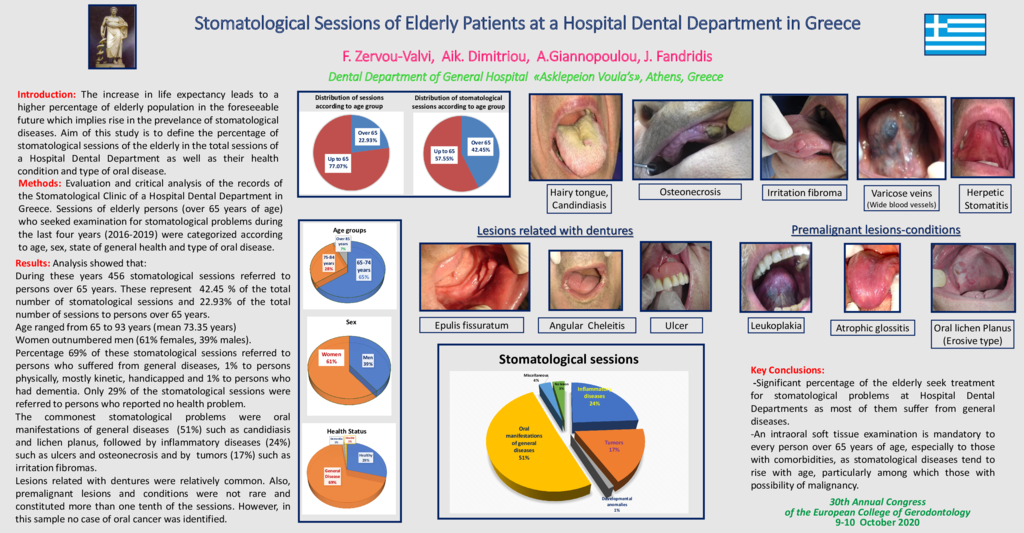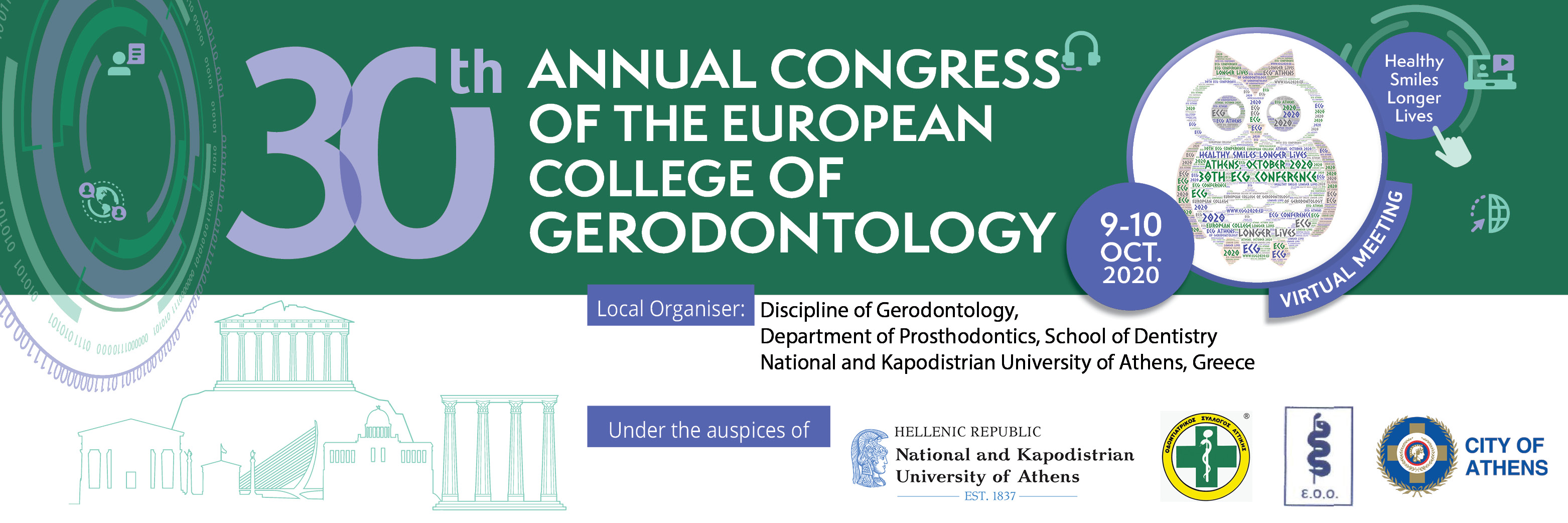Background and aim: The increase in life expectancy leads to a higher percentage of elderly population in the foreseeable future which implies rise in the prevelance of stomatological diseases. Aim of this study is to define the percentage of stomatological sessions of the elderly in the total sessions of a Hospital Dental Department as well as their health condition and type of oral disease. Methods: Evaluation and critical analysis of the records of the Stomatological Clinic of a Hospital Dental Department in Greece. Sessions of elderly persons (over 65 years of age) who seeked examination for stomatological problems during the last four years (2016-2019) were categorized according to age, sex, state of general health and type of oral disease. Results: Analysis showed that: During these years 456 stomatological sessions were referred to persons over 65 years. These represent 42.45 % of the total number of stomatological sessions and 22.93% of the total number of sessions to persons over 65 years. Age ranged from 65 to 93 years (mean 73.35 years) Women outnumbered men (61% females, 39% males). Percentage 69% of these stomatological sessions were performed to persons who suffered from general diseases, 1% to persons physically, mostly kinetic, handicapped and 1% to persons who had dementia. Only 29% of the stomatological sessions were referred to persons who had no health problem. The commonest stomatological problems were oral manifestations of general diseases (51%) such as candidiasis and lichen planus, followed by inflammatory diseases (24%) such as lesions related with dentures and osteonecrosis and by tumors (17%) such as irritation fibromas. Premalignant lesions, mainly leukoplakia, and premalignant conditions, mainly erosive lichen planus, were not rare and constituted more than the one tenth of the sessions. Conclusions: Significant percentage of the elderly seek care to Hospital Dental Departments for stomatological problems as most of them also suffer from general diseases. An intraoral soft tissue examination is mandatory to every person over 65 years of age, especially to those with comorbidities, as stomatological diseases, among which those with possibility of malignancy, tend to rise with age.
- 39 views



